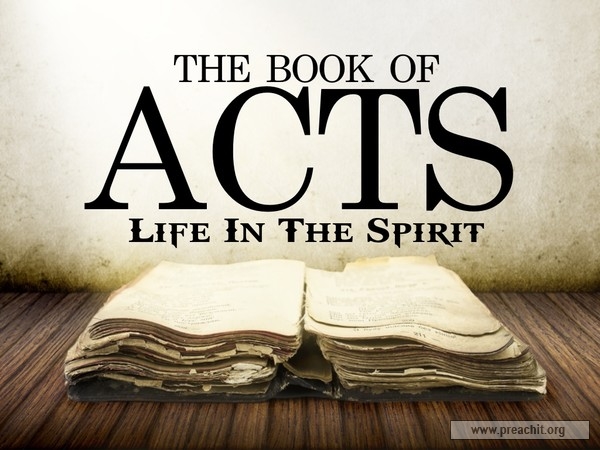ACTS 6 & 7
Bible Study Notes Rev. Betsy Perkins
Stephen, the Deacon
Psalm 133:1 says, “How good and pleasant it is when God’s people live together in unity!”
What advice would you give for how best to get along with people? How have you put that into practice?
Ministry Challenges (6:1-7)
- Re-read Acts 4:32-35. How did the believers’ situation change as the number of disciples grew and as their diversity increased?
- What is the conflict that arises?
- What solution do the apostles offer? Why didn’t they volunteer to be the solution?
- How did the group respond to the apostles’ suggestion? Was the solution successful?
- What are some things that cause tension and disagreements in the church today?
- What happens when believers criticize and argue with one another? Why is it important for Christians to get along with one another?
- What can we learn from the early church leaders about resolving differences?
Joe Boyd, Bible Experiment – Acts of the Apostles (RightNowMedia), 32:00 – 40:55
Stephen (6:8-15):
- What do we learn about Stephen from verses 3, 5 and 8? About his character? About his relationship with God?
- What happens when Stephen gets into a debate with members of a Greek-speaking synagogue? What do they do after the debate?
- What accusations are made against Stephen?
- What happens to Stephen as they bring him before the Temple court and begin the rigged trial? What does this change seem to indicate?
We already know Stephen was a man of the Spirit, faith and wisdom. Now we discover that this was put to good effect in debate, even when surrounded by hostile audiences: they were not able to controvert him, because he kept coming up with excellent arguments, with the conviction and power of the Spirit to support what he was saying. When people are faced with this kind of thing, they have a choice. Either admit he’s probably right, or throw as much mud as you can at him. They chose the latter. And soon it wasn’t just mud. N.T. Wright
Stephen’s Speech (7:1-53):
- If you were on the stand at a trial where people have twisted your words against you, how might you begin your defense? How does Stephan begin his defense speech?
- What does Stephen chose to highlight from the story of Abraham?
- What does Stephen chose to highlight from the story of Joseph?
[Stephen] is already building into his selective retelling a point which he will develop further in talking about Moses. Joseph was rejected by his brothers, but God used him to become the ruler of all Pharaoh’s household, and indeed of the whole land of Egypt. When his brothers needed food, the man they had to go to was the man they had been jealous of and so had rejected. Fortunately for them, he was gracious to them and gave them what they needed. N.T. Wright
- What does Stephen chose to highlight from the story of Moses?
- What are the things made by human hands that Stephen describes in verses 39-43? What commandment do the people of Israel break with these hand-made things?
- What is the thing made by human hands that Stephen talks about next? How are the people of Israel doing the same thing again with that?
- What accusation does Stephen make against the members of the ruling council? What does Stephen hope they will recognize about the pattern of rejection and idolatry as it relates to Jesus?
The main thing we have to watch is the question of how to tell the story – the story of the Israelites, of Jesus and the early Christians, and of ourselves. But it isn’t a matter simply of careful and skilful narrative. It’s a matter of watching for the places, both in the story and in our own lives, where suddenly God wants to reveal himself afresh. There are ‘burning bushes’ or near equivalents all over the place, if we know where to look. What new stories will people tell, in days to come, as they look back at your church as ask what new things God was doing in your day? N.T. Wright
Stephen is Stoned (7:54-60):
- Where does Stephen look in that dangerous moment after his speech? What did he see?
- The word ‘martyr’ technically means ‘witness’. How does that description fit both what Stephen did and what he saw?
- Do you know of people who have had visions or experiences with Jesus when near death?
- What are Stephen’s final words? What do we learn about Stephen from those words? What do we learn about God?
- Why was Stephen able to face death so courageously?
- Where should we look for strength and courage when we face difficult situations?
When the crisis moments come…when death looms…when dreams and plans suddenly disappear – to whom do we turn? Almost every day provides us with small and large opportunities to trust and reach for Jesus’ hand. We are most likely to reach for Him in our final moments before death if we’ve been in the habit of doing that all our lives. Max Lucado
In light of this passage and our discussion, what one truth about God and about yourself stand out as something to “take to heart” this week?
Are there steps you will take, by God’s grace, to more fully apply it to your life?
Resources: NIV Zondervan Study Bible, 2015
N.T. Wright, Acts for Everyone, Part 1 2008
Max Lucado, Life Lessons from Acts: Christ’s Church in the World, 2018
Joe Boyd, Bible Experiment – The Acts of the Apostles (RightNowMedia), 2014


Add Your Comment